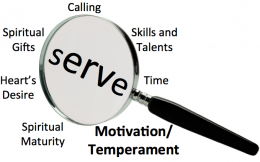 Many team building exercises involve some form of personality assessment. The premise is that a balanced team may be built if the various members represent a spread across the different options available. Probably the best known test is the Myers Briggs Type Indicator based on work by Carl Jung. Here there are four pairings or dichotomies that are attributed to an individual through psychometric testing, namely:
Many team building exercises involve some form of personality assessment. The premise is that a balanced team may be built if the various members represent a spread across the different options available. Probably the best known test is the Myers Briggs Type Indicator based on work by Carl Jung. Here there are four pairings or dichotomies that are attributed to an individual through psychometric testing, namely:
Extraversion (E)/ Introversion (I)
Sensing (S)/Intuition (N)
Thinking (T)/ Feeling (F)
Judgment (J)/Perception (P)
This results in 16 possibilities e.g. ESTJ, INFP.
I do not consider that such thorough assessments are needed when helping someone to serve in the church although there may well be benefits if they are inclined to respond well to such an approach. This sort of testing is not everyone’s scene!
I have chosen to adopt a more pragmatic approach which seems to work well for the very intermittent nature of serving in the church compared to an employed situation. I also use pairings, but do not have any form of psychometric test. I merely ask people to indicate one of four boxes where they feel they come on that scale.
Here are the pairs I ask people to consider:
Project/People
Some people are very ‘people-people’ while others just like to be given a task and get on with it without the interruptions and distractions that people can bring.
Sprinter/Long Distance Runner
The sprinter is very good at the short sharp effort required to get something going but if he or she has to keep going repetitively for lap after lap they become bored and lose focus.
Detail/Broad Concepts
There is a distinct difference between the person who focuses on the detail of an activity and likes to put everything in place, and the person who mainly sees the overview and cannot be bothered with all the detail.
Initiator/Responder
Some people have a hundred good ideas before breakfast while others never have an original thought. The latter are probably happy to follow the creative thinker putting in place all that is needed to let the idea come to fruition.
Loner/Team Player
Some people get their energy and satisfaction from working in a team while others like to be left alone to produce results.
Spontaneous/Pre-planning
Spontaneity is important to some people since it gives excitement and colour to life. Others get very frustrated if things are not well-planned in advance.
So, how does this work? I ask people to look at the following statements and then put a mark in an appropriate box (I have added some ‘X’s as a sample) which represents where they think they come on the scale between the two alternatives. (Nb By omitting a middle option people are forced to state a slight polarisation, which can be helpful when putting together a team.)
1. I prefer working on a project/with people.
2. When carrying out a task I am a better sprinter (i.e. short term motivation)/long-distance runner.
3. When considering a situation I see the detail/broad concepts.
4. I am a better initiator/responder.
5. When carrying out a task I work better alone/in a team.
6. I prefer to act spontaneously/with pre-planning.
Next time we will look at people’s time availability

